Ph.D.
27/03/2023 2023-03-27 13:39Ph.D.
Ph.D.
RESEARCH PROGRAM
About The Program
The Ph.D. programme at JSIA places strong emphasis on geo-politics and global studies that are largely affecting international relations in the age of globalization. The distinguished faculty members at JSIA decide on the research center(s) under which the Ph.D. candidate's research may be based.
Undertaking a Ph.D. programme at JSIA provides an opportunity to conduct deep and meaningful research on a subject with the support and supervision of world-leading scholars in the field in an institute with significant global connections and impact. The knowledge and critical thinking skills acquired through the dedicated training and supervision received at JSIA equip candidates with deep insight into the complexity of international relations, politics and practice, and widen their vision of how international relations are shaping the world in which we live.
What Makes It Different at JGU
JSIA provides a multidisciplinary research environment that encourages Ph.D. candidates to engage in interdisciplinary research and draw on insights from various fields to address complex global challenges. The institute's collaborative approach to research allows candidates to work with faculty members and scholars from different disciplines, fostering a deeper understanding of the intersectionality of global issues and the potential for creative solutions.
JSIA has a distinguished faculty comprising world-class scholars with extensive research and professional experience in the field of international relations, public policy, diplomacy, and business. Their expertise spans a wide range of areas, including human rights, conflict resolution, international law, trade, and finance, among others. Additionally, the institute has research centers that focus on specific areas of study, which provide opportunities for Ph.D. candidates to work with faculty members and engage in cutting-edge research.
A Ph.D. degree from JSIA can open up a wide range of career opportunities for candidates, both in academia and beyond. Graduates of JSIA's Ph.D. programme have gone on to work in leading international organizations such as the United Nations, the World Bank, and the International Monetary Fund, as well as in diplomatic services and management consulting firms. Additionally, the Ph.D. programme equips candidates with critical thinking skills, research skills, and subject-matter expertise, making them highly competitive in a wide range of fields.

The eligibility criteria for the Ph.D. programme at JSIA require applicants to hold a Master’s degree in a relevant discipline with at least 55% marks or equivalent grade. Applicants with more than 3 years of industry, teaching, practicing, managerial, or professional experience are preferred.
There are two categories of admission to the Ph.D. programme: full-time and part-time. Full-time Ph.D. students may or may not receive a fellowship and are expected to devote their full-time attention to completing the degree requirements. Part-time Ph.D. students, on the other hand, are not eligible for a fellowship and must balance their time between completing degree requirements and fulfilling other employment obligations.
The eligibility criteria and admission categories for the Ph.D. programme at JSIA offer flexibility for applicants with diverse backgrounds and professional experiences. The option for full-time or part-time study, as well as the preference for applicants with industry or professional experience, allows for a dynamic and diverse cohort of Ph.D. students who can contribute to the multidisciplinary research community at JSIA.
The Ph.D. programme at Jindal School of International Affairs (JSIA) has a minimum and maximum period of study and research of three years and six years respectively from the date of student registration.
To complete the program, students are required to earn a total of 21.5 credits. During the first semester, students are required to take core courses such as Quantitative Research Methods, Qualitative Research Methods, Academic Writing, and Research and Publication Ethics. In the second semester, students are required to take courses such as Theory and Praxis of Diplomacy and Advanced Social Science Research Methods.
In addition to core courses, students are required to take two elective courses from their area of specialization, each worth three credits. These courses will help students gain a deeper understanding of their chosen area of research and contribute to the development of their dissertation.
- Area Studies-Middle East
- Peace and Conflict Studies
- Energy Studies
- International Studies
- Diplomacy
- International Economics
- European Studies
- South Asian Studies
- Global Affairs
- Afghanistan Studies
- International Security
- National Security
- Global Affairs
- Human Rights and Law
- Israel Studies
- International History
- Energy Studies
- East Asian Studies
- Business Studies
- UN and Latin-American Studies
A Ph.D. in International Relations, Public Policy, Diplomacy, and Business from Jindal School of International Affairs (JSIA) offers a wide range of career opportunities for graduates. With a Ph.D. degree, graduates can pursue a career in academia, think tanks, research institutions, international organizations, NGOs, government agencies, and private organizations.
Graduates can become university professors and researchers, contributing to the development of new knowledge and advancing scholarship in the field of international relations. They can also work as consultants, advising businesses and governments on international issues and policy decisions. Graduates can also work as analysts, researchers, and policy advisors in think tanks and research institutions, providing insight and recommendations on a variety of global issues.
Those interested in working for international organizations, such as the United Nations or World Bank, can apply their expertise in policy formulation, analysis, and implementation. Ph.D. graduates can also work for government agencies, such as the foreign service or intelligence agencies, utilizing their expertise in diplomacy, national security, and international relations.
Additionally, Ph.D. graduates can work for NGOs and civil society organizations, advocating for human rights and social justice, and contributing to policy development and implementation at local, national, and international levels. Private sector opportunities include consulting firms, multinational corporations, and financial institutions, where graduates can apply their knowledge and expertise in international business and economic development.
